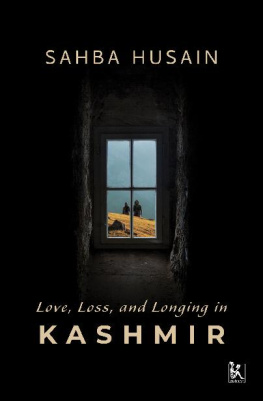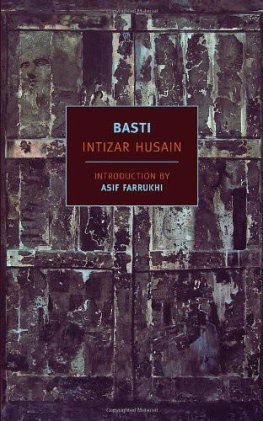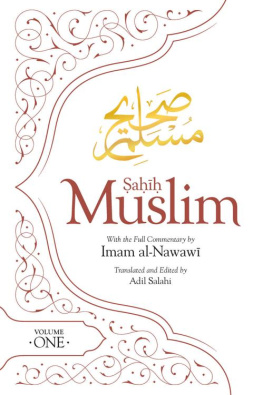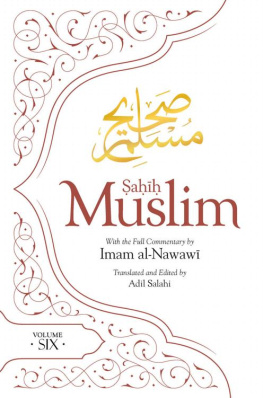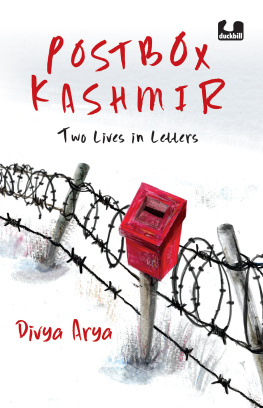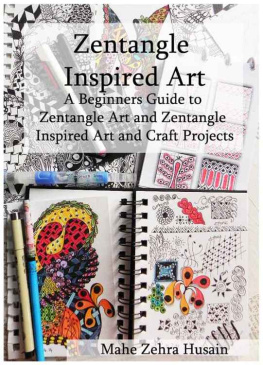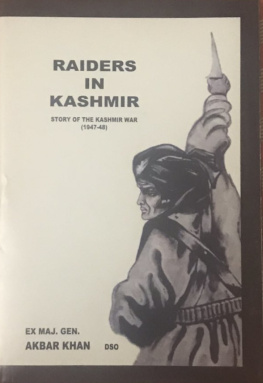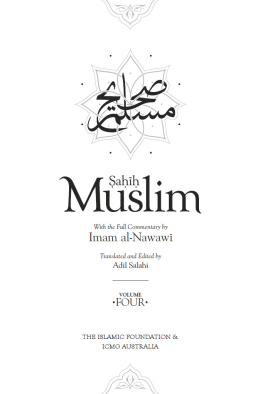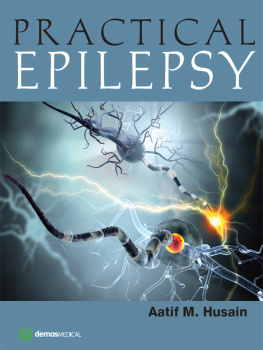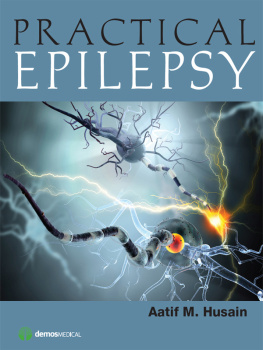Love, Loss, and Longing in Kashmir
In this personal and passionate account, activist and researcher Sahba Husain documents her deeply engaged and empathetic involvement with the politicised terrain of Kashmir. As she meets people that she speaks with and, more importantly, listens to, she begins to question her own 'Indian' identity. Recognizing the anger, despair and helplessness of a people caught in conflict and violence, Husain forms deep friendships during her time working in the state.
It is these relationships that form the backdrop of this book, in which Husain focuses on certain key areas: the health of a people, militancy and its changing meanings for local people and the state, impunity and the search for justice, migration and the longing for homes left behind, and women's activism in the faultlines of nation-state and community. A book of surprising beauty in its engagement with human relationships, of love for a land and a people and of hope for a future free of violence, Love, Loss, and Longing in Kashmir is a compelling and necessary read.

Sahba Husain is an independent researcher and women's rights activist. For the last two decades, she has travelled extensively in Jammu and Kashmir, documenting the social consequences of armed conflict, mass violence and militarization on individuals, families and communities, with a special focus on women. Her earlier research focused on problems of working women in the organized and unorganized sectors in several states of India and on the impact of development policies on women's social, political and economic status.
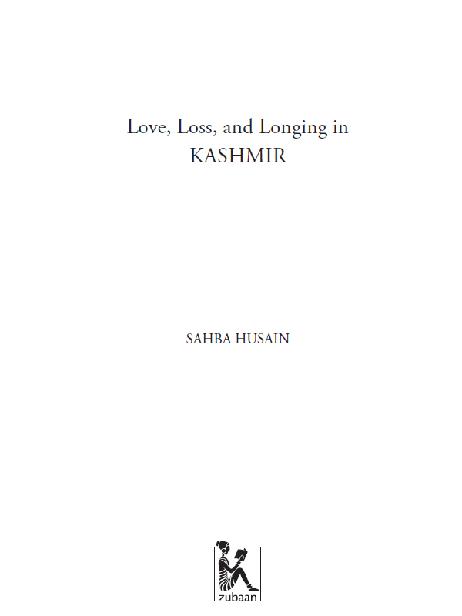
Zubaan
128 B Shahpur Jat, 1 st floor
NEW DELHI 110 049
Email:
Website: www.zubaanbooks.com
First published by Zubaan Publishers Pvt. Ltd 2019
Copyright Sahba Husain 2019
All rights reserved
10 9 8 7 6 5 4 3 2 1
eBook ISBN: 9789385932915
Print source ISBN: 9789385932878
This eBook is DRM-free.
Zubaan is an independent feminist publishing house based in New Delhi with a strong academic and general list. It was set up as an imprint of Indias first feminist publishing house, Kali for Women, and carries forward Kalis tradition of publishing world quality books to high editorial and publishing standards. Zubaan means tongue, voice, language, speech in Hindustani. Zubaan publishes in the areas of the humanities, social sciences, fiction, general non-fiction, as well as books for children and young adults under its Young Zubaan imprint.
Printed and bound at Thomson Press India Ltd.
Hello Reader!
This is just a note to let you know that all Zubaan ebooks are completely free of digital rights management (that is, DRM-free), so that you can read them on any of your devices and download them multiple times. We believe that this makes for a more trouble-free and pleasurable reading experience. To be fair to our authors and to enable us to continue publishing and disseminating their work, we appeal to you to buy copies of this ebook rather than share or give it away free. Thank you for your support and cooperation. And happy reading!
For my parents,
Khadija Bano and Syed Alam Khundmiri
Contents
Love, Loss, and Longing in Kashmir
an introduction
Kashmir conjures up many images, perhaps the most common of them its stunning and majestic natural beauty. But there is another side to this fabled paradise. In the words of a well-known local woman leader, Kashmir is a place where profound individual grief is absorbed into collective sorrow as people mourn the killings, the deaths, and the loss of those, known and unknown, who have gone.
Kashmir brought me face-to-face with a political, a humanitarian, an emotional, a psychological and a deeply personal reality. It challenged my understanding of these in light of the ongoing conflict that it has lived through for so many years. And, over the years, it not only influenced me profoundly but also transformed me, becoming what I began to see as my own place, its people, my own people. As a woman and a researcher, Kashmir has, in many different ways, been an exceptional and memorable experience for me. What I saw the first time I went there, and then on subsequent visits, the friendships that were gifted to me, the stories people shared with me with warmth, despair, love, generosity, and hope left an indelible imprint on me.
It was in Kashmir that I found friends who became family. Two of them, Rasheed Bhai and Sajjad, became my anchors as I tried to grapple with the complex reality I saw around me. Tragically, less than a year ago, within months of each other, both of them passed away; their loss affected me deeply. For me, they were the essence of the spirit of Kashmir of optimism, hope, integrity, joy, and moral strength. They became my buddies, my family, my work-mates, and my companions through the years of my work and life in Kashmir. Rasheed Bhai went first, due to cancer, in early February; Sajjad went suddenly (on April Fools Day) of a heart attack. Perhaps his heart held too much in it, perhaps Rasheeds did too, along with the smoke that seemed to have filled their lungs as much as their zest for life. They had their fingers on the pulse of Kashmir, and Kashmir and Kashmiriyat ran in their veins, the one (Rasheed) a houseboat owner living on the Dal Lake and the other from the downtown area of Alamgiri Bazaar. Their friendship and love accompanied me through each season I spent in Kashmir and their sudden deaths led me to think about my relationship not only with them and their families but also with Kashmir and its people. I began wondering how one defines ones relationship to a place, how one grows into it. Kashmir was a place that was once distant to me but that gradually began to inhabit my everyday consciousness, my thoughts, and my memories. With each visit, it also crept in, and touched and transformed my intellectual and emotional realm. I kept returning. What I want to share with the reader in this book is not only my personal experience of love, loss, and grief, but also how, in a place like Kashmir, the personal and the political begin to converge in peoples everyday lives.
Nearly thirty years after the conflict in Kashmir began, the much needed and much talked about political solution remains elusive. Instead violence continues to escalate, and peoples desire for a resolution and an end to it remains unfulfilled. Worse, rather than acknowledging its role in mass violence and injustice, the Indian state denies its complicity. Instead, it encourages people to forget the past, to put injustice behind them, to not think of grave violations and traumatic events, and to move on for a better future.
But while the state espouses the forget and move on theory, for the people the question is different. I discovered early on in Kashmir that the pledge of the aggrieved is never to forget, and never to forgive, as well as to ensure that the next generation remembers the history of the violence and its devastating consequences. Their struggle, defiance, and resistance continue against the institutionalized impunity perpetrators enjoy. For them, the battle is for justice and accountability and they want the state to recognize and acknowledge the truth of these violations.







